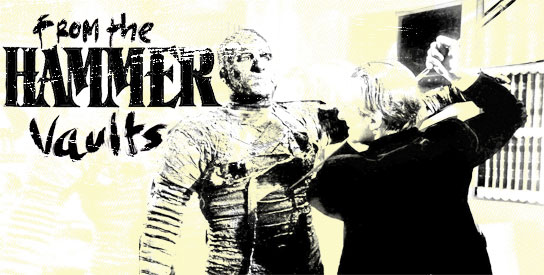 Hammer Film Productions are mostly known for their horror films; monster films of the likes of Horror of Dracula (1958) and The Curse of Frankenstein (1957). In this regular article, From the Hammer Vaults, I’ve discussed Hammer’s foray into war films, but perhaps their most consistently successful deviation from horror was their efforts in the thriller genre. Hammer’s thrillers were generally shot in stark black and white and told tales of (almost) perfect crimes. They were ripe with twists and solid scripting – well, most of the time, at least. My absolute favourite of these suspenseful thrillers – and one of the best Hammer films ever made – is Quentin Lawrence’s Cash on Demand.
Hammer Film Productions are mostly known for their horror films; monster films of the likes of Horror of Dracula (1958) and The Curse of Frankenstein (1957). In this regular article, From the Hammer Vaults, I’ve discussed Hammer’s foray into war films, but perhaps their most consistently successful deviation from horror was their efforts in the thriller genre. Hammer’s thrillers were generally shot in stark black and white and told tales of (almost) perfect crimes. They were ripe with twists and solid scripting – well, most of the time, at least. My absolute favourite of these suspenseful thrillers – and one of the best Hammer films ever made – is Quentin Lawrence’s Cash on Demand.
CASH ON DEMAND
1962, Quentin Lawrence
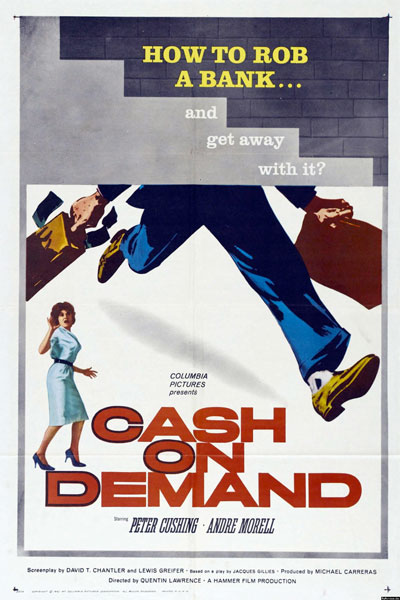
A ruthless crook, Hepburn (André Morell), abducts the wife and child of a bank manager, Fordyce (Peter Cushing), and then masquerades as an insurance company detective while scheming to rob the institution in this crime drama. Unfortunately, some of the manager’s employees learn about the plot and the terrified manager must beg them to remain silent.
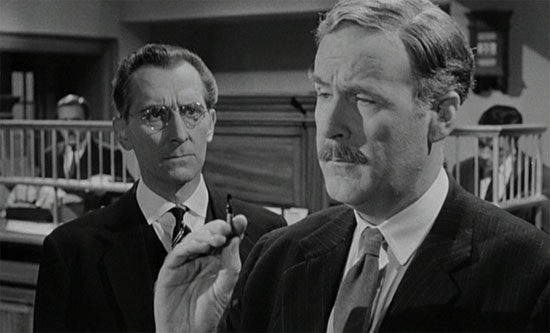
Fordyce berates an employee
Odd as this may sound, Cash on Demand plays out as an interpretation of the Dickens story, A Christmas Carol, with Peter Cushing in the role of Scrooge (or, in this case, a bank manager named Fordyce). Cushing is not so much greedy as he is unforgiving and cruelly strict with his employees. But by the end of the feature, he is a changed man. Cash on Demand‘s greatest asset is its leading characters and their performers. Cushing is at the top of his game as Fordyce – this may be the best role he ever had. Cushing takes a character who, if performed by a lesser actor, would be despicable. Cushing manages to make this harsh bank manager sympathetic. Fordyce faces off against Hepburn, the film’s charismatic villain, played by one of the few Hammer actors who could match Cushing’s skills, André Morell. Morell is uncomfortably likable. In the beginning of the film he is, despite his role as antagonist, far more likable than Cushing’s Fordyce. The character is an excellent mix of brutality and class. Watching Cushing and Morell play off against each other – in a completely different way to their equally impressive performances in The Hound of the Baskervilles – is an absolute delight.
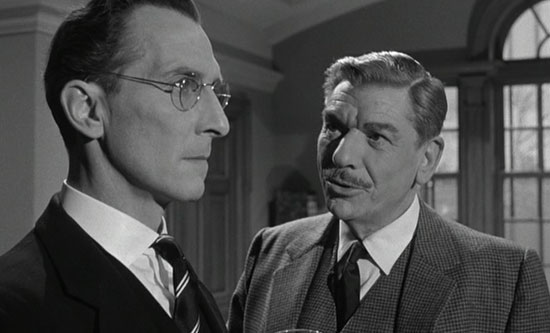
Two greats battling it out
Cash on Demand is an extremely low budget picture, even by Hammer standards. According to Wikipedia, the film’s budget, and this is the modern day equivalent, was an unbelievable £37,000! A film made for peanuts, Cash on Demand‘s low budget never shows. The film is based on a play and subsequently never leaves its bank location, but this only adds to the film’s tension and claustrophobia. Despite its rooted location, Cash on Demand feels fast-paced and never loses its sense of exhilaration. The cinematography also does not in any way reveal the film’s paltry financing. Cash on Demand is shot with all the skill you’d expect from a higher budgeted Hammer film.
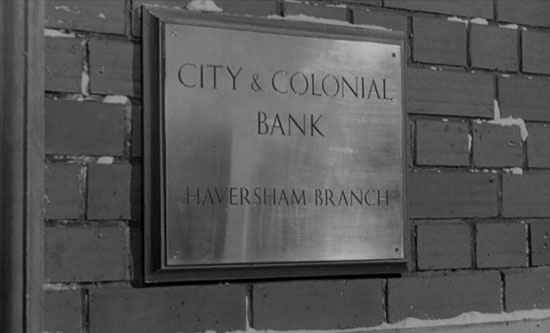
The film's singular location
An electric mix of brilliant scripting from David T. Chantler and Lewis Greifer, classy direction from Quentin Lawrence and wonderful performers to back up the written content, Cash on Demand is as good as Hammer gets. I find it completely bizarre that this film is not more talked about, especially since it contains two of Hammer’s most recognisable actors delivering performances that rank amongst their best work. Cash on Demand deserves to be seen. If you like your thrillers taut, intelligent and character driven, go and pick up The Icons of Suspense Collection… right now!





2 comments
Roland Van Deusen says:
Jun 11, 2014
It’s wonderful I found this. You’re 100% spot on. Cushing’s incredible acting chops carry this film, closeups of his tortured face transfixed me at 17 in the theatre. I thought it felt like “A Christmas Carol.” Thanks a lot for confirming my rare opinion on this, keep spreading the word.
Dave Jackson says:
Jun 11, 2014
Thanks for the comment, Roland. This film is criminally underrated!